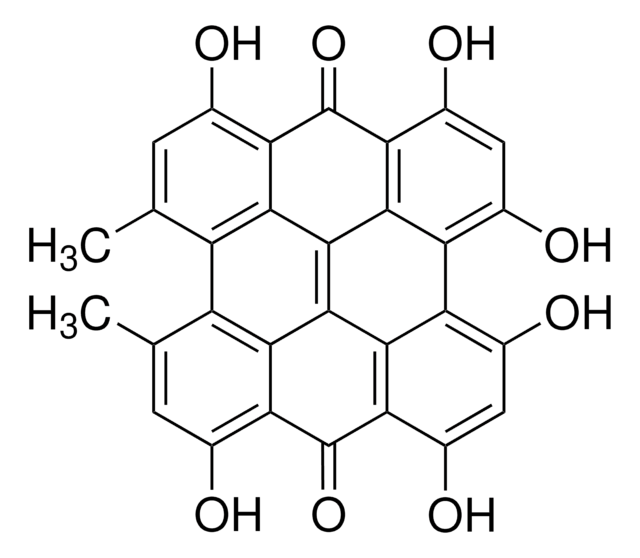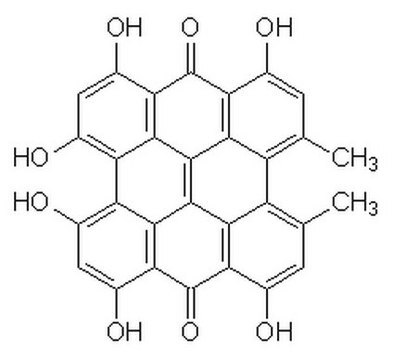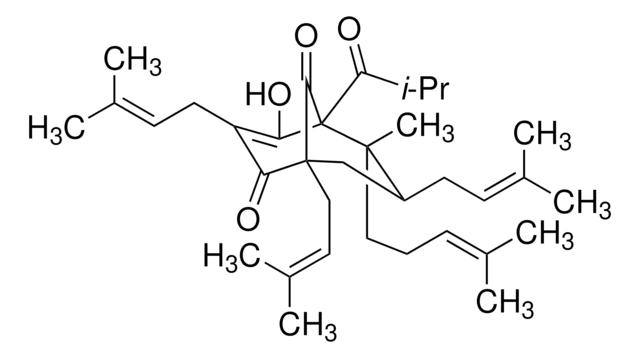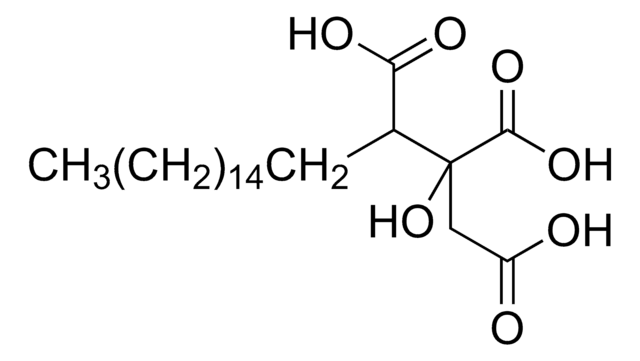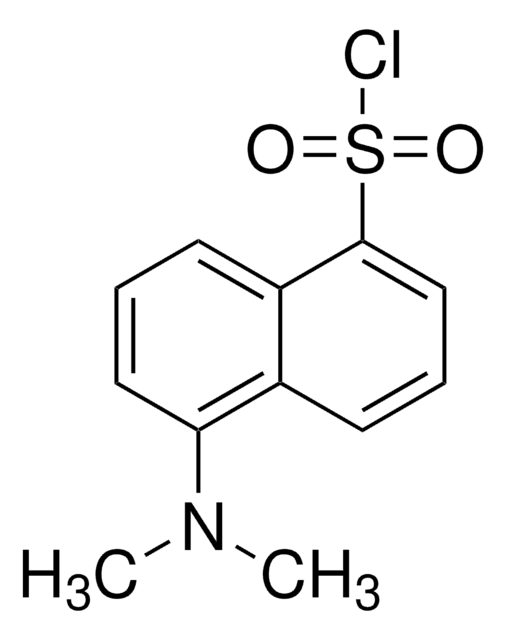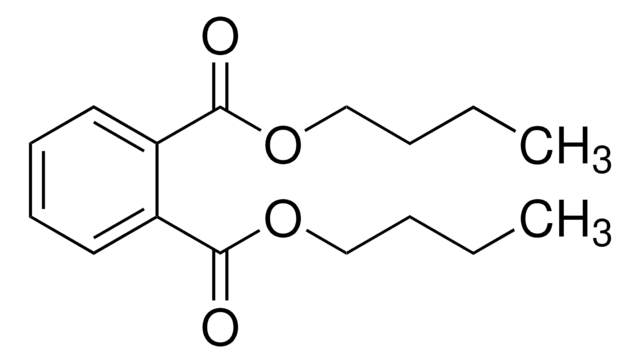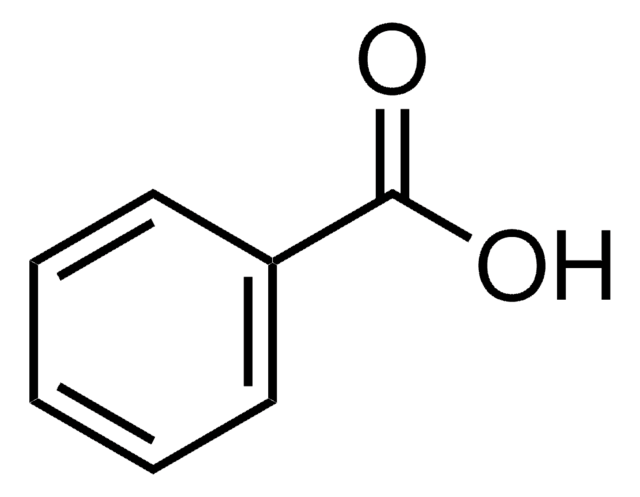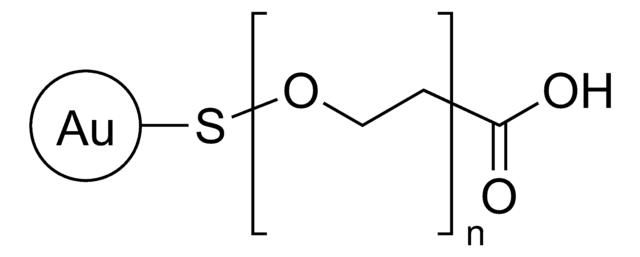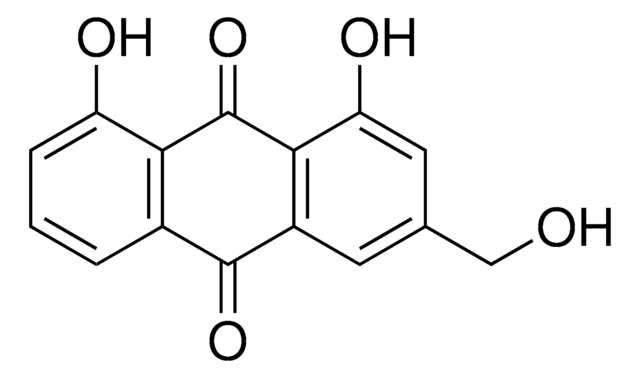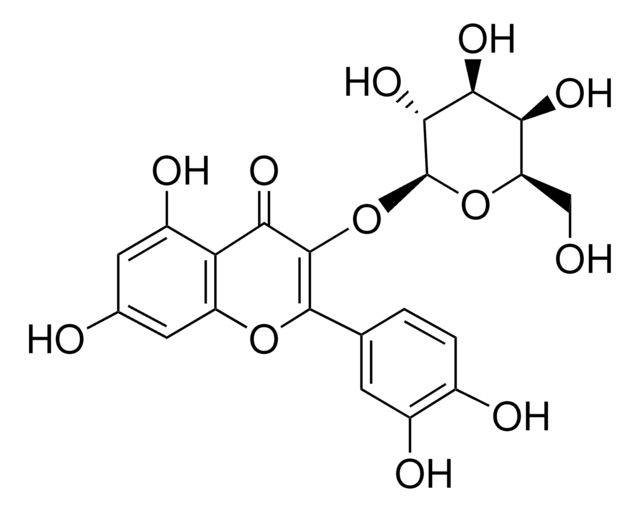56690
Hypericin aus Hypericum perforatum
~95% (HPLC)
Synonym(e):
4,5,7,4′,5′,7′-Hexahydroxy-2,2′-dimethylnaphthodianthron
About This Item
Empfohlene Produkte
Assay
~95% (HPLC)
Qualitätsniveau
Löslichkeit
1 M NaOH: 10 mg/mL, turbid, dark green
SMILES String
Cc1cc(O)c2C(=O)c3c(O)cc(O)c4c5c(O)cc(O)c6C(=O)c7c(O)cc(C)c8c1c2c(c34)c(c78)c56
InChI
1S/C30H16O8/c1-7-3-9(31)19-23-15(7)16-8(2)4-10(32)20-24(16)28-26-18(12(34)6-14(36)22(26)30(20)38)17-11(33)5-13(35)21(29(19)37)25(17)27(23)28/h3-6,31-36H,1-2H3
InChIKey
BTXNYTINYBABQR-UHFFFAOYSA-N
Suchen Sie nach ähnlichen Produkten? Aufrufen Leitfaden zum Produktvergleich
Verwandte Kategorien
Allgemeine Beschreibung
Anwendung
- in the broth macrodilution test and antibacterial assay against bacterial strains
- as a medium supplement for human malignant melanoma cells for irradiation and localization studies
- as a ligand for pregnane X receptor (PXR) and as defatting medium supplement for primary human hepatocytes culture
Biochem./physiol. Wirkung
Verpackung
Signalwort
Warning
H-Sätze
P-Sätze
Gefahreneinstufungen
Acute Tox. 4 Oral
WGK
WGK 3
Flammpunkt (°F)
Not applicable
Flammpunkt (°C)
Not applicable
Persönliche Schutzausrüstung
dust mask type N95 (US), Eyeshields, Gloves
Analysenzertifikate (COA)
Suchen Sie nach Analysenzertifikate (COA), indem Sie die Lot-/Chargennummer des Produkts eingeben. Lot- und Chargennummern sind auf dem Produktetikett hinter den Wörtern ‘Lot’ oder ‘Batch’ (Lot oder Charge) zu finden.
Besitzen Sie dieses Produkt bereits?
In der Dokumentenbibliothek finden Sie die Dokumentation zu den Produkten, die Sie kürzlich erworben haben.
Kunden haben sich ebenfalls angesehen
Unser Team von Wissenschaftlern verfügt über Erfahrung in allen Forschungsbereichen einschließlich Life Science, Materialwissenschaften, chemischer Synthese, Chromatographie, Analytik und vielen mehr..
Setzen Sie sich mit dem technischen Dienst in Verbindung.